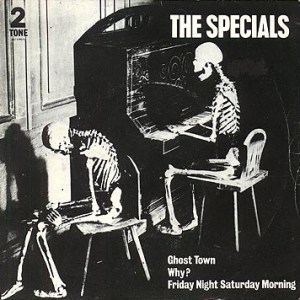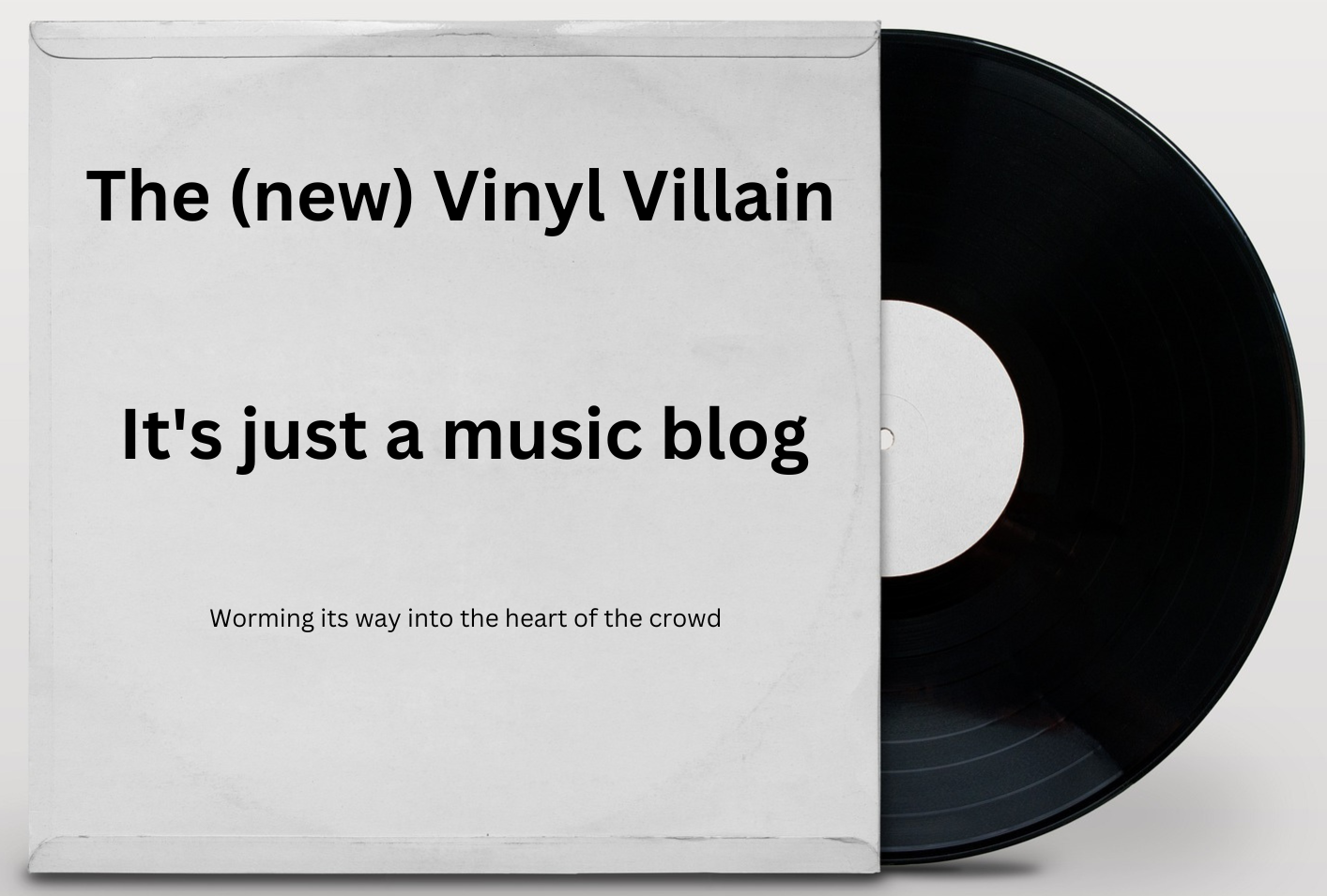ORIGINALLY POSTED ON WEDNESDAY 30 APRIL 2008

Like many others of my age in 1980, I bought a whole bundle of singles by new emerging bands such as The Beat, Madness and The Specials. I didn’t go the whole hog and buy the natty suits and pork-pie hat, but I loved my ska bands.
In 1981, The Specials released Ghost Town, a song that was completely unlike any other that had ever emerged from the ska movement. It bulleted up the charts and spent a number of weeks at #1. In retrospect, it has been called the most prophetic of songs ever to be a chart-topper, and there’s all sorts of great pieces of writing all over the internet about how politically significant it all was.
But…….I’m sorry to say, and this may be seen as a piece of heresy, but my love for the song is solely related to the tune and the great vocal performances…
However, that shouldn’t be taken as meaning that I wasn’t aware of the political stooshie that Ghost Town was causing. I was growing up fast in 1981, just about to leave school and go off to University. I had a comfortable and very pleasant upbringing, but I was from an area where I had friends who should have come with me to university, but were in circumstances where they had instead to take on a job to in banking or with the civil service to help support their parents, one or both of whom were out-of-work. Poverty and deprivation weren’t alien concepts to me.
There is no other way to put it – Ghost Town is a savage attack on the state of British society at the outset of the 80s. The Tories under Margaret Thatcher had come to power in 1979 thanks in part to a famous main campaigning slogan of ‘Labour Isn’t Working’ with a poster that showed a huge crowd of people waiting to get into the unemployment office and sign-on.
Two years on, the situation was even worse – unemployment rates had almost doubled across the country. In some areas, particularly where there was a high concentration of young ethnic minorities, as many as 8 out of 10 folk weren’t in employment.
Throw in the rise of the fascist far-right in the shape of the National Front who were blaming non-whites for the state of the nation and a police force that was being given more and more stop-and-search powers by a government determined to appear as the party of law-and-order, then the ingredients were there for something to kick-off.
The people were getting angry.
So angry in fact that in April 1981, something happened that was totally alien in the UK. There was a riot in the streets.
It happened in Brixton in London, and it began as the reaction of a crowd to what they saw was the racist arrest of a local youth (something that was subsequently proven to be true).
The trouble escalated over a 48-hour period before being brought under control. For the first time that I could recall, pictures of police and civilians fighting toe-to-toe in the streets were shown on television, along with images of what seemed to be a whole neighbourhood on fire. And it really did look as if there was going to be some sort of major uprising, but within two or three days, the police had regained order.
Two months later, Ghost Town was released as a single.
But the song wasn’t just a reaction to what had happened in Brixton – in fact it had been written and recorded before the April riot. But to some it seemed to act as a rallying call, for within weeks of its release, as it climbed its way up the charts, there were more riots on the streets.
This time it was Toxteth in Liverpool that was initially in the spotlight. Again, it was initially a reaction to tensions between the police and disaffected black youths, and similar scenes of carnage were beamed live into our homes courtesy of the TV (and all this in the days before we had 24-hour news channels). Toxteth was on a larger scale than Brixton and before long, other riots broke out, the largest being in Handsworth in Birmingham, as well as in many other towns and cities across England.
My recollection is that it took about a week to get things back to normal.
Living in Scotland, I had a feeling of being sheltered from all of this trouble. It may have been Liverpool, Birmingham, London and so on, but it felt as if it was as far away as Detroit, Chicago or Los Angeles.
There was no rioting in Glasgow. Nor was there ever any threat of rioting in Glasgow, despite the unemployment problems being every bit as bad here as anywhere else. What I believe was crucially absent at the time, was a disaffected ethnic minority in my home city that was prepared to take to the streets in protest. I’m not going to make any absurd claim about racism not being an issue in Glasgow in 1981, but it certainly was nowhere near as big a problem as it was in the inner-cities south of the border. Oh and its fair to say, that policing methods were slightly different as well…
The fact I was physically separated from the trouble and violence is why I never, at the time, made the connection between Ghost Town and what was happening in many parts of the country. It was only in the cold light of day a short while later, when the music papers in particular made the connection that the little light bulb went on above my head.
To lots of people, this song will always be associated with events that briefly threatened the very fabric of British society. To this humble scribe, it’s just a great song.
Here’s the 12″ cuts with the second of the the two b-sides featuring probably my favourite ever Terry Hall vocal. Having said that, the other b-side is up there with the very best of The Specials. It really is a maginificent three-track single.
mp3 : The Specials – Ghost Town
mp3 : The Specials – Why?
mp3 : The Specials – Friday Night, Saturday Morning
Enjoy.

Great post,
Fabulous Tune.
SC
Steve Jones of the Sex Pistols lives in LA and has a radio program called Jonesy’s Jukebox. (I played soccer against him a couple of times, but that’s another story.) He has guests on the program and they get to play whatever they like. Once he had Tracey Ullman on, who played ‘Friday Night, Saturday Morning’, and said it perfectly captured what it was like for young folks to go out on a weekend night, dancing and drinking and spending dole money. She explained to Jonesy that the girls danced in a circle with their handbags in the middle so they wouldn’t get stolen. My favorite Specials song, of many.
A really excellent post about a truly excellent single.
Loved this post the last time I read it too. This really is a perfect 12″ single… every note, both sides. Never gets old and never much time between plays at my place.
Great post about miserable times and fantastic music